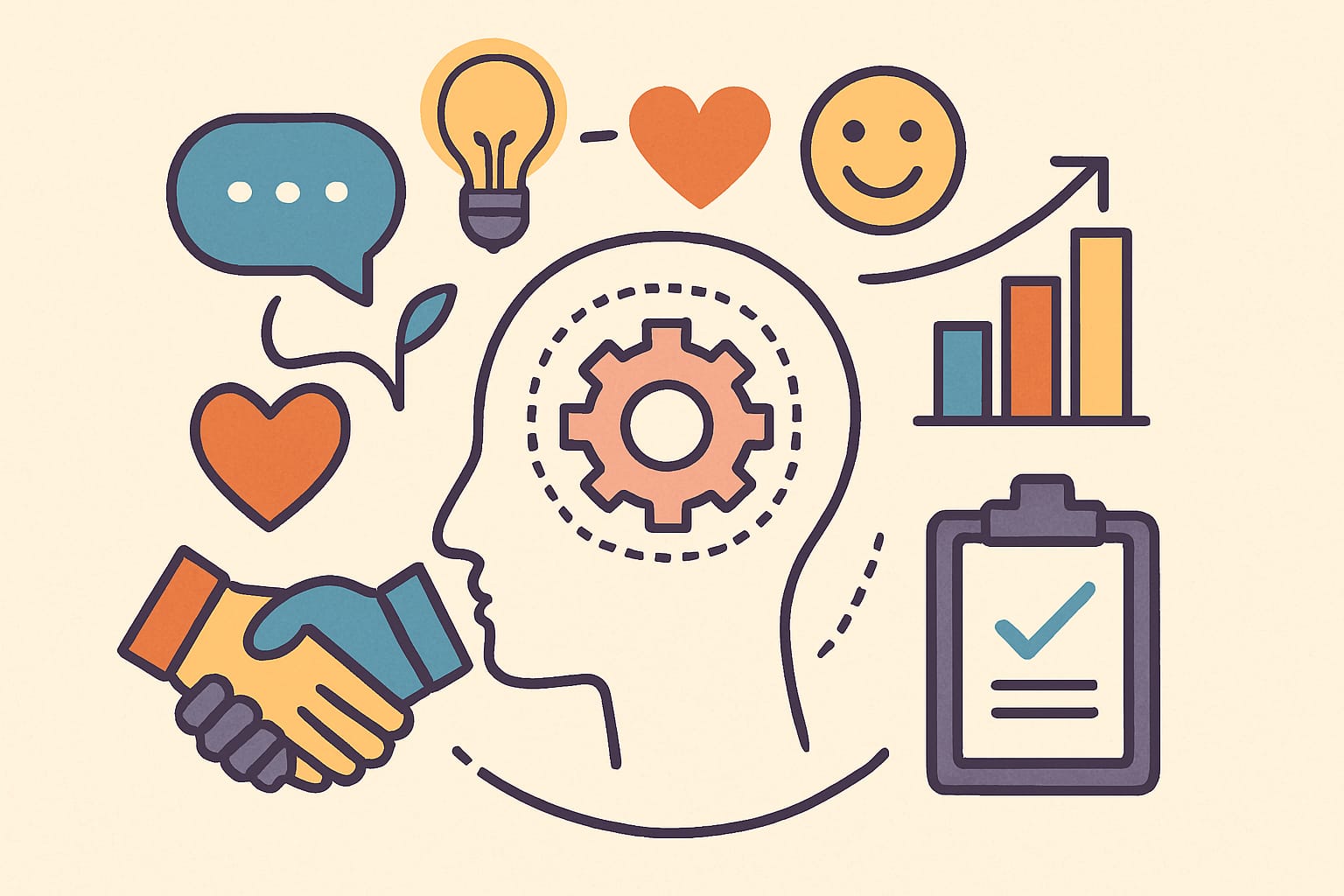

Welcome to 2030: Where Soft Skills Have Abs of Steel
22-Sep-25
If you thought your ability to juggle spreadsheets and code in five languages would guarantee career longevity, think again. By 2030, it’s not just what you know instead it’s how you think, adapt, and vibe that gets you hired. The job market is doing its own evolution, and spoiler: soft skills are finally having their main-character moment.
Let’s dive into the
future of work, using the data from 2025 - 2030 to uncover what’s rising,
what’s fading, and what might just surprise you.
The Rise of the Machines and
the Humans Who Understand Them
Unsurprisingly, AI
and Big Data take the crown as the most in-demand skill by 2030.
In fact, employers are practically fighting over anyone who can understand how
to train a model that predicts whether Karen from accounting will misplace
another spreadsheet. Understanding how to interact with, develop, or at least not
be afraid of AI will be a baseline requirement like knowing how to mute
yourself on Zoom (finally).
Hot on its heels are Networks
and Cybersecurity, Technological Literacy, and Creative Thinking.
In other words, if you can secure the network, understand the tech, and still
pitch a weird-but-genius marketing campaign using sock puppets and blockchain,
you’re golden. You’ll be the unicorn every employer is looking for.
Soft Skills Are the New
Hard Currency
Yes, the robots are
coming but turns out, humans with emotional intelligence, creativity, and
curiosity are still very much in demand. In fact, skills like resilience, flexibility,
and lifelong learning are becoming the secret sauce for long-term success. Why?
Because between climate change, AI disruptions, and five new workplace
messaging apps every year, people who can adapt quickly are the MVPs of the
workforce.
Employers are actively prioritizing these self-efficacy skills - those that help you not just do the job, but survive the job. Leadership, emotional self-awareness, and social influence aren’t buzzwords anymore, they’re core expectations. Welcome to the era where therapy skills might get you promoted faster than technical skills.
What’s Cool, What’s
Drool?
The most in-demand by
2030 are all about adaptability, tech, and innovation. AI and Big Data, Cybersecurity,
Technological Literacy, and Creative Thinking dominate both in
growth rate and industry demand.
On the flip side, skills
that once stood proudly on résumés like Manual Dexterity, Sensory-Processing
Abilities, and even Reading, Writing, and Arithmetic are now gently sliding off
the “hot list.” Sure, they’re not useless, but they won’t open as many doors as
they used to. Sorry, Shakespeare.
Even Dependability and
Attention to Detail, once the Holy Grail of HR, is now labeled “steady but not
sexy.” It’s still important, but don’t expect it to carry your career like it
used to.
Out-of-Focus Skills: A
Moment of Silence
It’s time to pour one out
for the OG skills that helped humanity build pyramids, operate heavy machinery,
and survive the early days of the internet. According to the data, Manual
Dexterity, Precision Work, and even Mathematical Literacy are seeing a net decrease
in importance by 2030. They’re not obsolete, but automation has taken a big
bite out of their job market relevance.
Skills like Multilingualism,
Global Citizenship, and Quality Control fall into the “nice to have, not
must-have” bucket. If you’ve been polishing your French while fine-tuning your
Excel macros, it’s still useful but employers are increasingly chasing those
with more hybrid, tech-powered abilities.
Your 2030 Career Toolkit
(Because Panic Is Not a Strategy)
So, what can you do to stay ahead of the curve (and out of the unemployment line)? Here’s your five-step career survival kit for the years ahead:
- AI & Data Skills
- These are the literacy skills of the next decade. Think of them as the
new Excel.
- Get Comfortable With Cybersecurity
- Hackers don’t take holidays. Cyber-literacy will protect your data and
your career.
- Practice Creative Thinking
- Yes, this includes brainstorming wild ideas and solving problems
sideways. Weird is good.
- Master Soft Skills
- Empathy, resilience, curiosity, and communication are more than HR
buzzwords they’re your professional lifelines.
- Stay Curious and Flexible
- Be ready to re-learn, un-learn, and re-re-learn. The only constant is
change (and Slack notifications).
Final Thoughts: Being
Human Is Still a Superpower
In a world of machine
learning, automated workflows, and deepfakes, being authentically human is one
of the most irreplaceable assets you can bring to the table. Skills like leadership,
emotional intelligence, and lifelong learning aren’t just
relevant, they’re critical.
So, next time someone
asks why you're taking both a Python course and an improv class, just smile and
say:
"Because I’m
preparing for 2030."
Trust us, 2030 will be
less about what you memorized in school and more about how quickly you can
think on your feet, lead with empathy, and co-exist with machines (without
cursing at the printer). Stay sharp, stay curious, and maybe update that
LinkedIn headline while you're at it.









.png)


